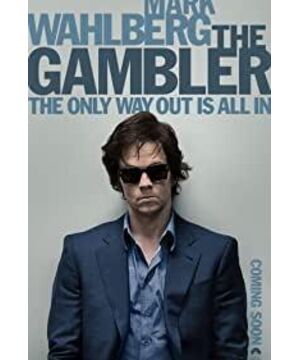Many unwritten norms of modern society tell us that the world is not black and white.
The predecessors used a smooth way of life to warn us to "don't talk to death".
"This plan is not bad, but consider whether there are other possibilities?"
"This price is a bit high. Let's discuss the price later?"
"I'm not sure if I like you or not, why don't I have an ambiguous period first?"
"If I refuse directly, the other party will definitely be sad, so should I say something nice against my heart?"
Retaining the possibility of neutrality, using a swaying attitude that dare not take decision-making risks, to give ourselves a chance to see the wind and the rudder, so that we can find an ambiguous buffer zone in many relationships. In the final analysis, it is to create a sense of security .
But Real Cool's life is always only Yes or No.
No need for security, so no need for "protection," no middle ground, so no room for bargaining. Everything is only "meaningful" and "meaningless".
The casino is a scene that best expresses this outlook on life and values. In each hand, there are only "call" and "no call", and the ending is only "win" and "lose".
Therefore, for the male protagonist, in the process of finding the meaning of self-existence, there are only two options: to be or not to be. He applies this "casino rule" to every relationship, and uses this rule to ask the people around him. everyone. This is why he is so sharp that he leaves no room for his interactions with different people.
The book came out and was named the best novel of the year, but he didn't think he had any talent, so even though everyone said Good job, he refused to continue writing.
Teaching modern literature in the university, as a basic course, even if everyone knows that everyone is here to mix credits, they are not willing to "pretend to be lecturing" perfunctory.
Omega's watch, I'm asking $3500, you just have to say yes or no, don't haggle with me.
The goal in the casino is 260,000, so even if he wins 160,000, he won't let it go, because 260,000 is WIN, and only winning 160,000 and losing all are LOSE to him.
Every one is ALL IN, and the ending is either ALL WIN or ALL LOSE. There is no "castle" carefully built by Frank's so-called passbooks, real estate, and Japanese cars.
So Frank, the dead fat man, is very interesting, and the dialogue between him and the male protagonist is also very exciting. The ultimate "realist" also represents the principle of life for most people. Only with a passbook, a house, and a car are they qualified to say FUCK YOU to the world.
But the male protagonist told him that the highest level of FUCK YOU is, "I have the opportunity to own a passbook, a house, and a car, but I don't care about it."
However, the male protagonist also had a situation where the "casino rules" were not implemented in place, which was his relationship with the female protagonist. From the time he agreed to the relationship, he seemed to have entered a state between Yes or No, but soon the black guy's threat made him sober. Before the meaning of self-existence, I can only say NO to you.
"If I'm not dead, I'll come to you."
"If I die, you bury me."
It's a bit confusing to think about where to write it, and finally add a point, which I personally think is quite interesting.
The male protagonist's mother and him are actually carved out of the same mold. The scene of going to the bank to withdraw money is the most exciting. The conversation between the male protagonist's mother and the bank teller is simply another version of the "Casino Rules", "You don't have to ask anything. Say, it's my own money, I know what I'm doing, so you just have to choose option A - just give the money, don't tell me about BCDEFG other than A."
In the end, the clerk still said "this is for your safety".
The male protagonist showed a mean smile on the side :)
View more about The Gambler reviews











